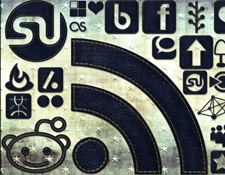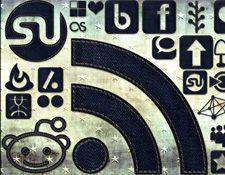
 Today’s technology has changed the landscape of so many things.
Today’s technology has changed the landscape of so many things.
It has revolutionized the way we do business, the way we communicate, the way we receive our news, and even our social lives.
Social media outlets like Twitter, Facebook, MySpace, and Linkedin have allowed us to “meet and greet” people from different countries, date from the comfort of our keyboards, chat people up in chat rooms, seek work, and establish important connections.
But, with this privilege comes new rules and new responsibilities. Particularly for today’s professional.
Some employers are monitoring employees’ “after-hour” activities and online personalities to learn more about the people that play a role on their teams.
Do they have that right? That’s debatable.
Nonetheless it’s a reality for today’s worker that shouldn’t be ignored.
One area that seems to be susceptible to scrutiny (other than personal Emails) is blogging. Bloggers beware.
Some time ago, a teacher was fired because of negative comments he made on his blog about the students at his school and what he identified as “ghetto parents.”
A woman who worked for an airline was given a pink slip for posting pictures that were deemed “inappropriate” on her blog. Others have met with disastrous results for venting about their bosses “bipolar personalities.” And the list goes on.
Workers that feel that restricting or monitoring their after hour activities and vent sessions are a violation of their 1st amendment rights, may need to reconsider.
If your state or contractual agreement is “at-will” this means that your employer can terminate you without proving that you were incompetent or violated a work-related policy. It’s that simple.
With this being the case, here are a few things to consider.
1. Err on the side of caution. If you work for a conservative company, or one that is well-known, or one where your employment is already shaky, proceed with caution.
2. Never use specific names, or divulge confidential information about your company or its clients. Ever.
3. If you must vent or use “adult language” or themes, you may want to use a pen name or alias.
4. To maintain a degree of privacy, it’s recommended that you adjust the privacy settings on your Facebook account, where the information can only be accessed by approved “friends”.
5. Some bosses also check emails of their employees to assess how much company’s time is used for goofing off. It’s even possible to view formerly “deleted” files.
Keep these five tips in mind when you’re online and off work. Though it may not be fair, small adjustments on your part can make your Internet activities an asset and not a liability. Be sure to consult your company’s policies for specifics.
This is a guest post by Jennifer Brown Banks, a veteran freelance writer and pro blogger. She holds a B.A. in Business Management. Visit her site @ http://penandprosper.blogspot.com/
Leave a Reply